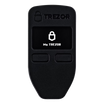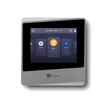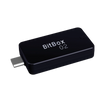A Comprehensive Guide to Different Types of Cryptocurrency Wallets
Cryptocurrency wallets play a crucial role in the world of digital assets, providing a secure and convenient way to store, send, and receive cryptocurrencies. With the ever-growing number of cryptocurrencies and the variety of wallet options available, it's essential to understand the different types of wallets and their unique features. In this comprehensive guide, we'll explore the various types of cryptocurrency wallets and their pros and cons.
-
Hardware Wallets:
Hardware wallets are physical devices designed to store your private keys offline, providing the highest level of security. Some hardware wallets come in the form of USB-like devices and are considered "cold wallets" since they are not connected to the internet when not in use. Hardware Wallets are one of the most secure ways to Manage cryptocurrency. It comes with the private keys, which never leave the device, protecting them from online threats like hacking and malware.
Pros:
- Maximum security against online attacks.
- Convenient for long-term storage and large cryptocurrency holdings.
- Support for multiple cryptocurrencies.
Cons:
- Costlier compared to other wallet types.
- Requires a physical device to access funds.
-
Software Wallets:
Software wallets are digital applications that can be installed on your computer or smartphone. They are further categorized into:
- Desktop Wallets: These are installed on your computer and provide full control over your private keys. They are more secure than web wallets as they are not dependent on a browser.
- Mobile Wallets: Installed on your smartphone, they offer the convenience of accessing your funds on the go. They are useful for everyday transactions and managing smaller amounts of cryptocurrencies.
- Web Wallets: Accessible through a web browser, web wallets are easy to use and require no downloads. However, they store your private keys on the server, which poses security risks as you are dependent on the wallet provider's security measures.
Pros:
- Convenience and ease of use, especially for everyday transactions.
- Some mobile wallets offer enhanced security features like fingerprint or face recognition.
Cons:
- Web wallets may have lower security due to their reliance on third-party servers.
- Mobile wallets might be susceptible to mobile operating system vulnerabilities.
-
Paper Wallets:
Paper wallets provide a physical copy of your private and public keys, often in the form of a QR code. They are entirely offline and considered one of the most secure methods for storing cryptocurrencies. Generating a paper wallet is usually done on a trusted website or software, and you must keep the physical copy safe from damage, loss, or unauthorized access.
Pros:
- High level of security as the keys are stored offline.
- There is no risk of hacking or online attacks.
Cons:
- Can be cumbersome to use for frequent transactions.
- Careful storage and protection are crucial to avoiding loss or damage.
-
Online Wallets:
Online wallets are provided by cryptocurrency exchanges or third-party wallet providers. They are accessible through a web browser and allow easy access to your funds for trading and quick transactions. However, since your private keys are held by a third party, they present a higher security risk compared to other wallet types.
Pros:
- Convenient for trading and quick access to funds
- Some online wallets offer integrated exchange services.
Cons:
- Security concerns due to reliance on third-party control of private keys.
- Susceptible to hacking and phishing attacks.
-
Multi-Signature Wallets:
Multi-signature wallets require multiple private keys to authorize transactions, adding an extra layer of security. For example, you might set up a 2-of-3 multi-signature wallet, where two out of three private keys are required to sign a transaction.
Pros:
- Enhanced security against unauthorized access.
- Suitable for shared accounts or business use.
Cons:
-
Setting up and managing multi-signature wallets can be more complex.
Quick guide to Unlocking Crypto Security: A Comprehensive Guide to Different Types of Cryptocurrency Wallets

















Leave a comment
This site is protected by hCaptcha and the hCaptcha Privacy Policy and Terms of Service apply.